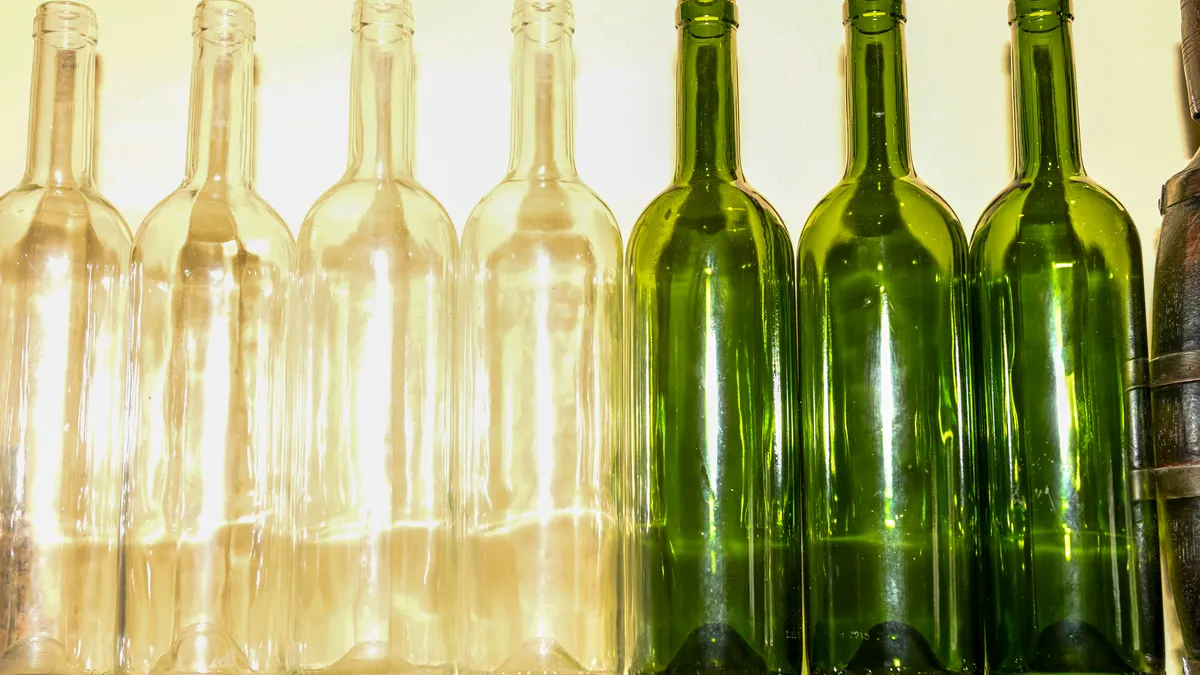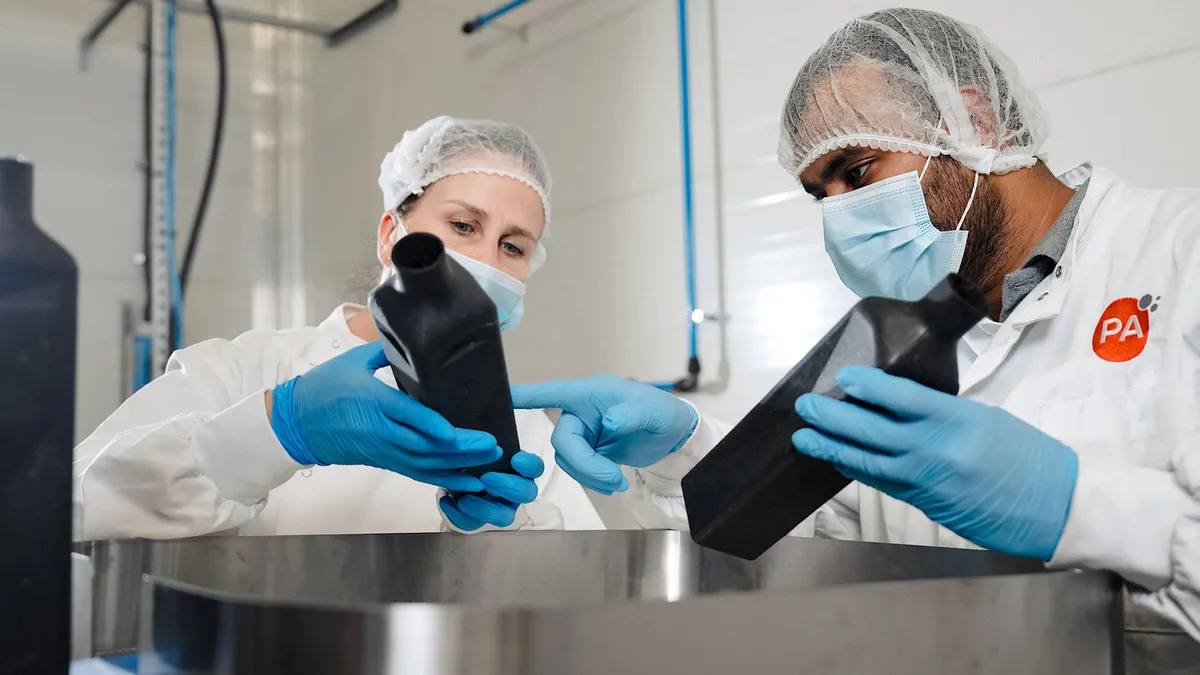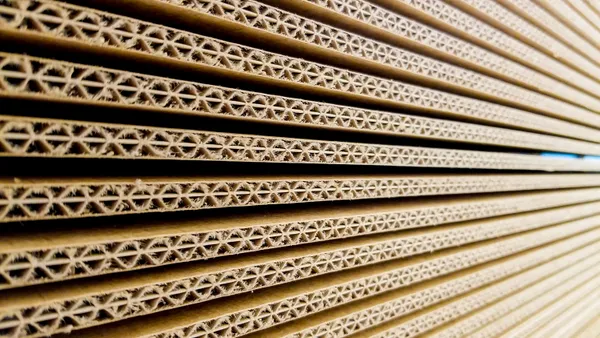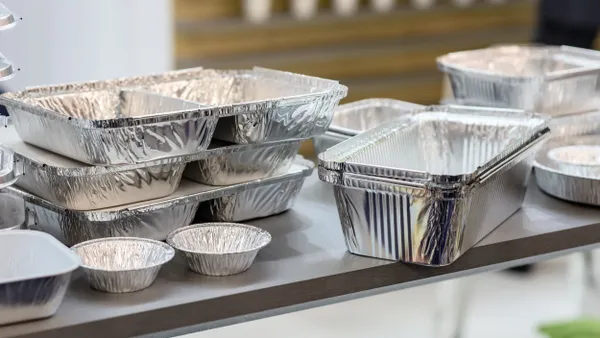Dive Brief:
- Ardagh Glass and other U.S. wine bottle producers notched a win when the U.S. Department of Commerce issued a preliminary determination this week finding that glass wine bottles being imported from a range of Chinese producers are unfairly subsidized at varying levels. This follows Ardagh and United Steelworkers co-petitioning on the issue beginning last December as the U.S. Glass Producers Coalition.
- The preliminary rates for countervailing duties — meant to offset exporter subsidies — range from about 21% at the low end to nearly 203% at the high end. A final determination from Commerce on these rates, after auditing Chinese producers, is expected in August.
- In the meantime, U.S. importers of these products will be on the hook for cash deposits, explained Dan Pickard, international trade and national security practice group leader at Buchanan Ingersoll & Rooney, the law firm representing the coalition.
Dive Insight:
The Commerce Department’s release this week is just one development in a more than a year-long process. Anti-dumping and countervailing duty investigations run through both the U.S. International Trade Commission, which determines whether the domestic industry is injured, and Commerce, which decides on the extent of unfair pricing, Pickard explained.
“If you look over the past three-year period, you see imports from those countries taking market share away from the domestic industry,” Pickard said, referring to China as well as Mexico and Chile. The countervailing portion of the investigation applies only to China, while an antidumping investigation applies to all three. A preliminary determination on dumping is expected in late July.
Buchanan believes that the rates shared this week are “fair,” but are “probably understating” the extent of the issue and “should actually be higher so they provide meaningful relief to the domestic industry,” Pickard said.
Those rates are subject to change in the final determination. “There’s no guarantee but, as a general rule, you see the margins increase” after further auditing and verification, Pickard said, because preliminary rates are “based off of some of the information that's most favorable to Chinese companies.”
Due to the cash deposits, which can also apply retroactively, “You don't have to wait until the end of the case before you start to get a remedy. You actually get it in about halfway through,” as this step begins to offset unfair pricing, Pickard said.
Scott DeFife, president of the Glass Packaging Institute, said the organization is “encouraged by the preliminary findings.”
“We've known for some time that something is askew in the Chinese glass market,” he said. GPI is not a direct party to the case but it works closely with both petitioners. Ardagh is a member of GPI.
GPI says data it's analyzed from USITC shows that the volume of 750ml glass wine bottles imported from China in January through April 2024 more than doubled year over year.
This is not the first campaign to examine glass containers coming into the U.S., according to DeFife. But the more narrow scope of this case on wine bottles may have helped focus the investigation.
As for the antidumping portion of the case — which could levy tariffs on imports considered to be priced below fair market value — those rates could later be added on top of the countervailing duties for China.
Ultimately, when this case wraps up, an antidumping and countervailing duty order could be issued for a period of five years, Pickard said. After that, the domestic industry could ask for it to be reupped in subsequent five-year periods, although rates could be recalculated.
Other packaging-related investigations by ITC and Commerce this year have covered tin mill products and aluminum foil.















